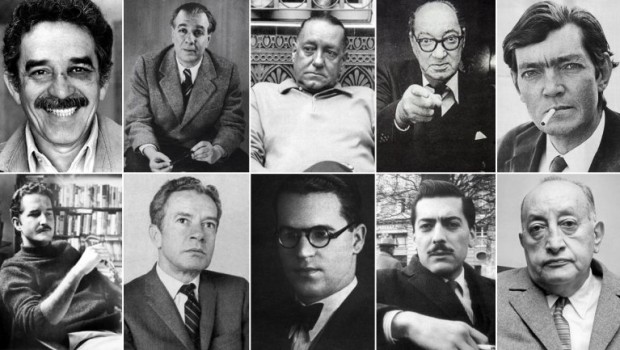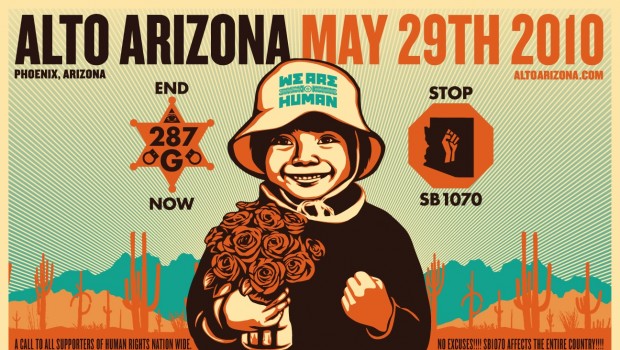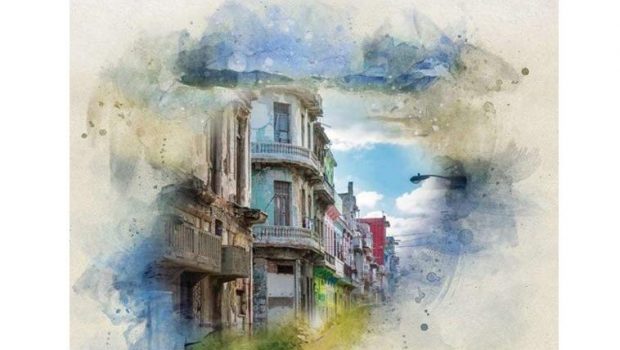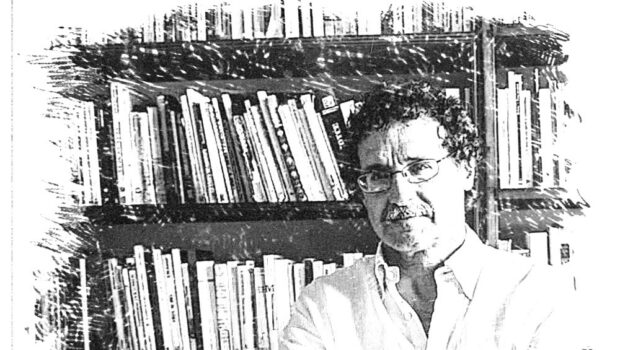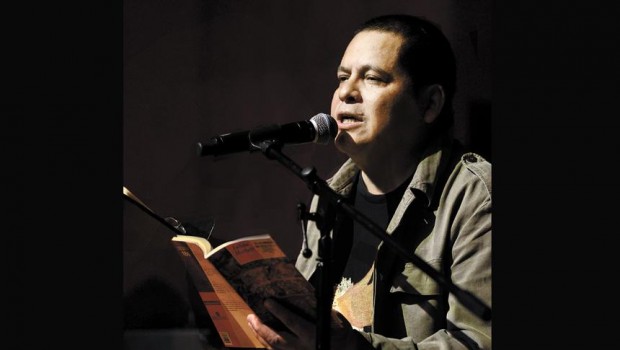Literature and Politics
Rogelio García-Contreras
 Maarten van Delden and Yvon Grenier,
Maarten van Delden and Yvon Grenier,
Gunshots at the Fiesta, Literature and Politics in Latin America,
Vanderbilt University Press, 2009.
The complexity and diversity of human reality cannot be narrowed to just one or two interpretative systems. In fact, the analysis of any given political or historical affair is not only partial but incomplete and subjective, unless we make an attempt to understand different aspects of the human experience away from the rigid principles of the scientific method. The myth of objectivity embedded in practically every rational and scientific attempt to explain or discuss political affairs must be eradicated from our efforts to develop comprehensive accounts of modern political systems. If, as Walter Benjamin wrote, “the essential is in the nuance” then we can always take more of the sum than of the subtraction, so the more nuances we have, the greater our chances are to discover essential things. The ‘scientific’ principle of reducing and simplifying variables for the goal of scientific accuracy is not only dangerous but obsolete.
Modern political science should not expect to rely on its own scientific methodology to provide a complete–and accurate–understanding of political events, or else our political analysis will not only be incomplete but rather mediocre. This, I think, is the reason for which every analyst or studious of the Latin American reality should read Gunshots at the Fiesta. The book in and by itself is a hidden gem, a historical and political account founded over the epistemological pluralism and theoretical diversity of Latin American literature. A critical reader of the work and novels of Latin America’s greatest writers, this extraordinary book offers a variety in nuances and enunciations that allows the informed reader of the Latin American reality to make a crucial distinction between works that advance narrow and dogmatic agendas, and works that–like this one–strive to capture the complexity and open-endedness of human existence in historical time (p. xiv).
Through a vast compilation of the most influential Latin American authors, literary critic Maarten van Delden and political scientist Yvon Grenier, study the relationship between the tumultuous and chaotic political reality of the continent, and the impressive literary production that the region has been able to generate during the last two hundred years, but specially since the second half of the twentieth century. Through the novels of Mario Vargas Llosa, Miguel Otero, Domingo Sarmiento, Gabriel Garcia Marquez, Carlos Fuentes, Miguel Angel Asturias and Juan Bautista Alberdi, among others, Van Delden and Grenier–Tamayo’s two brothers–show the dangerous liaisons between literature and politics, and the multiple ways Latin American intellectuals have worked in closer proximity to the realm of political power than those writers in other parts of the world.
With an amazing ability to identify foundational trends among a vast variety of authors and novels, these two brothers do not only offer a conceptual framework for understanding the relationship between literature and politics (which often also relate as siblings), but a historical framework to determine the role of politics in contemporary Latin America. Well seen, modern history is not an attempt to explain the past but a conscious–and often, unconscious–effort to justify the present. If this is true, official versions of modern history just as much as scientific accounts of political regimes are not to be trusted without a parallel, complementary and comparative account of the literary work and other artistic or cultural manifestations of the people living in these communities, experiencing those realities and hoping for particular results while working on specific solutions.
From the literary and historiographical representations of La Malinche, to a form of “Romantic Liberalism” present in the writings of Nobel Prize winner Octavio Paz, or the power of “Magic Realism” decorating the pages of the new Latin American novel, Gunshots at the Fiesta reflect on all the different ways Latin American authors have dealt with questions of multiculturalism and intercultural contact, while focusing on the idea of modernity and its relationship to the complex nexus between art and politics. Are we truly modern or, as Alfonso Reyes would argue, are we sentenced to enjoy no more than the crumbles of civilization? Are we sentenced to arrive always late to the dinner of modernity? Are the effects of our counterreformation our true original sin?
Despite such an interesting, ample and intriguing contribution to the study of Latin America, this book greatest contribution might not be in its literary account of Latin American politics or history, but in its ability to examine, through what the authors decided to call “foundational narratives”, the key role literature has played in the forging of national identities in Latin America. What does it mean to be Mexican? Lets ask Paz… How does it feel to be Cuban? Lets ask Marti… How can we overcome the vicious of modernity? Let us ask Alberto Moreiras; lets read Borges’s translation of Faulkner.
If in fact the main problem of social sciences rests on the relativity of the scientist position, Gunshots at the Fiesta offers a possibility to emancipate political or historical accounts of the Latin American reality from a particular moral or ideological position, and allows for a variety of perspectives to have a say through the characters and stories present in the region’s vast collection of novels and literary essays. For instance, the huge political and economic discontent existing in the continent often contrasts with the overwhelming diversity and exceptional cultural manifestations present in the region: From a vast and delicious culinary tradition to a powerful and rich cinematography; from an outstanding mixture in plastic arts to the sublime creations of local composers; and from the truth hidden in the lyrics of popular music, to the truth revealed by graffiti in the walls of almost every city.
Latin American culture constitutes the sphere through which the men and women of Latin America redeem themselves from the burden of day to day life and the misery and poverty generated by recurrent economic and social crises. Latin American literature, more specifically, is at the same time the space where it is possible to reflect on the commerce between collective neurosis and political passions.
Posted: April 19, 2012 at 5:34 pm


